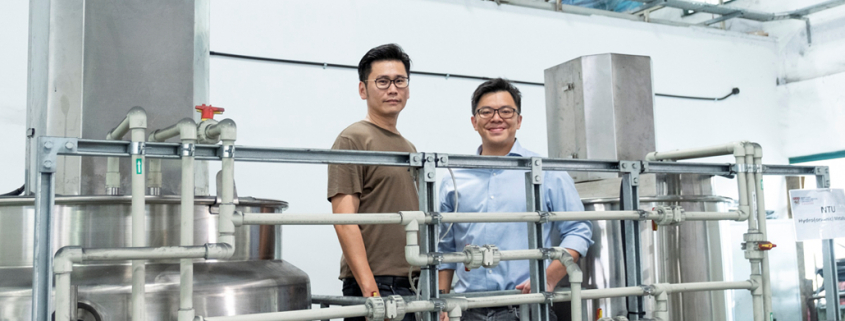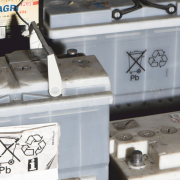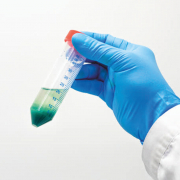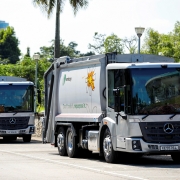Singapore: Pilot Recycling Plant to Tackle Battery Waste with Fruit Peels
Following a successful proof-of-concept to recycle spent lithium-ion batteries using reagent extracted from fruit peel waste, Nanyang Technological University, Singapore (NTU Singapore) is collaborating with Singaporean company Se-cure Waste Management Pte Ltd (SWM) to scale up the technology in a pilot plant.
According to the university, the pilot battery recycling plant has the capacity to process up to 2,000 liters of spent shredded battery mixed with fruit peel derived solvents for extraction of electrode materials such as cobalt, lithium, nickel, and manganese. “The scientists from the NTU Singapore-CEA Alliance for Research in Circular Economy (SCARCE), who developed the technology of using fruit peel waste to tackle battery waste, is also looking at using other types of biomass waste.”
As reported, a key feature of the pilot plant is its modular design. Apparently, it allows it to be easily configured for optimal reaction conditions to extract different types of metal. Located at Neythal Road off Pioneer Road North in Singapore, the pilot plant has been operational since the last quarter of 2022. “Over the course of this year, the NTU and SWM team will work to optimize processes that maximize the extraction yield of valuable metals from battery waste for reuse at pre-commercial scale”, NTU gave account. They would also evaluate the plant’s technical performance and economic viability with the goal of commercializing the technology.
Using biomass waste to replace strong chemicals
In 2020, an NTU team led by Associate Professor Dalton Tay and Professor Madhavi Srinivasan successfully extracted over 90 percent (in weight) of the precious metals found in processed lithium-ion battery waste in the lab using orange peel waste and made new batteries with these recovered metals.
“This method of using fruit peel waste in place of conventional strong chemicals and acids to extract precious metals from battery waste is called hydro-organic-metallurgy”, the Singaporean university informed. “The scientists have since successfully replicated their success in the lab using other types of fruit peel waste – such as the peel of pineapples, pears, and lemons – before working with local e-waste recycling company Se-cure Waste Management (SWM) to scale up this technology.” In this new pilot plant the process starts with SWM shredding and crushing spent lithium-ion batteries to form a crushed material, from which plastics and metals like copper, aluminum, and iron are separated. On average, the company processes 18 tons of spent lithium-ion batteries daily.
The final product, called black mass, contains cobalt, lithium, nickel, and manganese. The black mass is poured into the pilot plant and dissolved in chemical concoctions derived from fruit peel waste that has been oven-dried and ground into powder. These concoctions, which the scientists have filed a patent for, are designed to leach out precious metals over low heat.
The precious metals are then precipitated into metal salts that can then be used to assemble new lithium-ion batteries.
(Published in GLOBAL RECYCLING Magazine 2/2023, Page 38, Photo: NTU Singapore )









